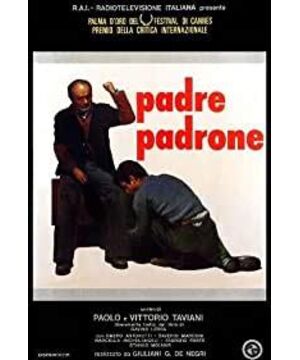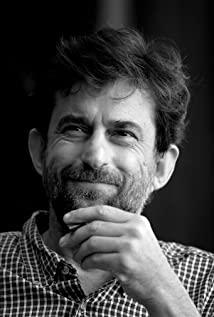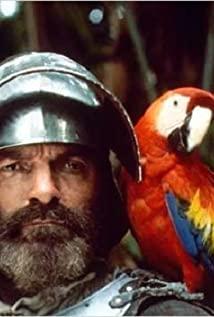The story is very simple and very real: a Sardinian shepherd, who grew up to twenty years old, speaks the native Sardinian language, and does not know a word. His father sent him to join the army because he expected him to see the world. Who knew that his son was angry in the army, but he made small achievements in language, and later became a linguist, writing his experience into a book. The film is based on this book, and the author himself appears at the beginning and end of the film.
Just looking at the story, it seems like a Hollywood script outline, but in fact this is just one of the most inconspicuous clues in the film. But I can only say this because this film cannot be told in a storytelling way.
Or to put it another way: the entire 100-minute film is devoted to the oak tree that stands in the barren fields of Sardinia, which makes a strange roar in the whistling sea breeze, mixed with the bells, like this As old as a wasteland, a village, a shepherd in the wasteland. The shepherds called it "the sacred tree of Sardinia". It is a symbol of a barbarous land, a field full of rough stones and thorns. The protagonist was driven back to the wasteland by his father from the classroom since he was a child. He wanted to escape from here, but in the end he found that even if he had become a linguist, he could not escape the oak tree. The final shot is of the author returning to his hometown in the cold wind, sitting among the rubble, like an ancient oak tree.
Sardinia has its own music, which is very special. It can be heard at the funeral in the film. It is by no means Italian-style bel canto. When it comes out (like Xintianyou's singing method), it forms a chorus of thirds or fourths, with a monotonous melody roaring back and forth. The basic structure is 3--︱4--︱5--︱3--:‖. In contrast, Johann Strauss' "The Bat" played by the passing accordion artist seemed to promise a distant beauty, Mozart was too fragile to survive on this land, and the furious father put the playing "Clarinet Concerto". —Adagio's radio in the sink because his son refuses to work to review his linguistics course.
The film's description of life in Sardinia is almost "realism" without any cover up. For example, the film herders use mules to vent their sexual desires, and their underage children go to catch sheep or hens to open their buds; vendetta among villagers, according to The ancient barbaric custom of biting off the toes of the dead. The director deliberately used rough grain printing effects and clumsy editing insertion methods to strengthen, intentionally to shatter people's fantasy of rural life. By contrast, Cinema Paradiso and A Beautiful Tales of Sicily (both Tornatore's sweet-tasting works) are as fake as soap bubbles.
View more about Padre Padrone reviews








